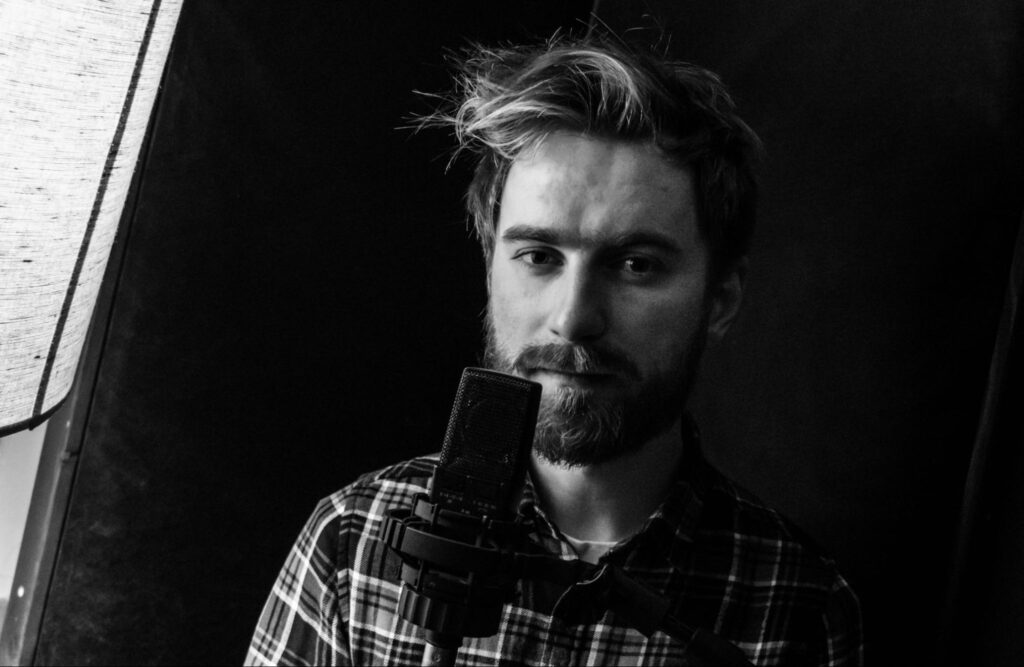
Karolis Vyšniauskas is a journalist from Lithuania, currently studying Media Innovation at NYU. He helped establish NARA, the pioneering longform journalism and media education space in Lithuania, where he has worked as an editor, membership manager and podcast host. This is his “Coming From” statement.
The first time I felt the power of journalism was when I was a teenager, spending too much time on video games. It was the early 2000s, a strange time when you could subscribe to a print magazine about the digital world.
And that is what I did. The magazine was called Kompiuterija and I would read it all, cover to cover.
The editor of Kompiuterija was encouraging readers to send their own stories for the magazine. I wrote a review of Grand Theft Auto: Vice City and, to my surprise, it was published. The feeling of seeing your article on paper was one of a kind. Getting paid for that didn’t hurt as well. Especially when you are 14.
But the most important thing was that journalism connected me with other people. In the next issue, someone wrote an answer to my review. We, the readers of the magazine, were talking, even though we had never met each other in real life.
At that time, I lived in a village in Lithuania and went to school in a small city next to it. I knew that there was a big world out there and I wondered if journalism could be my way to reach it.
Eventually, that is exactly what happened. I felt a similar sensation many times, for example, when hosting a radio show alone in a Lithuanian National Radio studio, knowing that there were many people out there who were listening, I just didn’t see them. Or when doing one-on-one interviews that would later be read by many people who are not in the room with you and your interviewee.
Of course, there are so many ways for people to connect now. Journalism is not the most powerful and definitely not the easiest one to do that. It’s almost archaic.
But I like it, because the journalistic way of communicating is different. It’s more enlightening. When journalism is done right, people become more fulfilled versions of themselves. The journalistic way of talking allows me to ask questions I would otherwise struggle to ask. And why would those people talk to me anyway?
Journalistic practice allows me and my interviewees to talk about topics that society struggles to uncover, such as mental health, inequality or sexual misconduct. In “normal” life you rarely start your conversation with people about those topics. In the journalistic approach, if people trust you, you can do that straight away.
So this is what journalism is for me: it is a way to make new, more informed and more honest connections. I see my job as a facilitator of this process. That is my role in society, that is why I am useful.
However, there are a few rules and observations that are worth knowing when engaging with my work. Let me share them with you.
- My focus is on those who have less power. It doesn’t mean that they are always right. But I don’t want to be a journalist who is serving only the elites. There are many other industries that do that.
- I believe that we have enough material and mental resources for our societies to flourish. But we are failing to use them. Uncovering the “why” and “how” of that is one of the goals of my work.
- Social media in 2021 is a polarizing and tiring place. Yet I am dependent on it to reach my readers and listeners. This tension is at the heart of my work and I am looking for ways to escape it.
- My worldview is shaped by Lithuania, the country I was born in and where I have been living for more than 30 years. Even in my international coverage, the worldview from Lithuania might be present and I may not be aware of it.
- In my work I tend to criticize many aspects of today’s Lithuania, including its conservative political class and our inability to deal with the country’s history. But my criticism is an act of good faith. I want our society to grow. I love Lithuania, that is why I criticize it.
- I think that too many journalists in Lithuania side with the powerful. I find more kinship with people from Lithuanian human rights organizations. Sometimes we do projects together. That doesn’t mean I wouldn’t point out the problems in these organizations.
- I feel like my worldview is limited to European and American spaces. I am learning the Russian language to understand the Russian world better. I want to engage more in Middle Eastern, African, Asian and Latin cultures. I’m afraid my lifetime won’t be enough to do that.
- I think that the greatest issue for our generation is the climate crisis and I don’t believe we, as the world, are capable of solving it. The shadow of climate catastrophe is always at the back of my mind as I think about my future.
- I think the change that I, as a single journalist, can achieve, is very small. On the grand scale of things, my articles or podcast episodes are just bits in the internet machine. I know this. And yet I also know that I can sometimes manage to reach people and achieve true connections. That makes it worth doing.
Learn more about Karolis and his work in Lithuania with NARA here.
